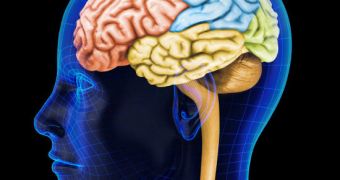Researchers with the University of Michigan now say that, according to their investigations, the human brain reacts to emotional paint the same way it does to physical injuries.
More precisely, it triggers the release of several chemical compounds whose purpose is to help dull the pain and make the individual feel better.
In a paper published in the journal Molecular Psychiatry, the scientists explain that, in order to figure out how the human brain responds to psychological pain as compared to physical one, they carried out a series of experiments with the help of 18 volunteers.
These people were all adults, and were first asked to check out several hundred fictitious personal profiles, and pick and choose the people that they would have been interested in becoming romantically involved with, Daily Mail reports.
The volunteers were then placed inside a PET scanner, and told that the people who they showed interest in had rejected them. As shown by the brain imaging machine, this piece of news caused each volunteer's brain to be flooded with opioid.
The brain regions that this compound first and foremost traveled to were the ventral striatum, amygdala, midline thalamus, and periaqueductal gray, all of which have been previously documented to play a part in physical pain.
Interestingly enough, the volunteers and their brains reacted in this manner to the news that the person of their choice was not interested in dating them despite being fully aware of the fact that the profiles they had been asked to look at were all fictitious.
“This is the first study to peer into the human brain to show that the opioid system is activated during social rejection. In general, opioids have been known to be released during social distress and isolation in animals, but where this occurs in the human brain has not been shown until now,” Dr. David Hsu commented on these findings.
“The opioid system is known to play a role in both reducing pain and promoting pleasure, and our study shows that it also does this in the social environment,” he added.
The researchers believe that their findings will lead to the development of better treatments for depression and other similar conditions.

 14 DAY TRIAL //
14 DAY TRIAL //